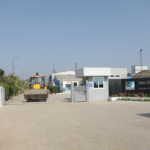Is a Non-Resident Indian (NRI) in Cape Town, South Africa eligible to invest in Mutual Funds in India? This is the first question that hits our mind when discussing NRI investment in mutual funds. Yes, an NRIs in Cape Town, South Africa can easily invest in Indian mutual funds from the comfort of their home through an online medium. Indian Mutual Funds are equally accessible to NRIs as they are accessible to Indian residents.
It is a well-known fact that being an NRI has its perks. Observing the contemporary global investment scenario, the Indian Mutual Funds are quite attractive and well-performing; that’s why NRIs want to invest in their home country. Talking about the advantages of investing in mutual funds, the main benefit of investing in India Mutual Fund is that it provides you forex gains and an easy online investment process. It simply means that you can invest anywhere at any time, thus trespassing the boundary of time and space.
Traditionally, NRIs invested only in fixed deposits and real estate, but things have changed a lot in a few years. Now NRIs are looking forward to invest in mutual funds in India. India is a developing country and is expected to become a superpower in the world economy sooner or later. Now the question arises why NRIs are looking forward to invest in mutual funds in India. The possible answer can be that the mutual funds help NRIs build a diversified portfolio of equity and debt in India. Besides this, NRIs can conveniently offset the losses on one currency with the gains on the other, just sitting at home.
NRIs in South Africa
The term “South Africa” comes from the country’s location at Africa’s southernmost point, formally known as the Republic of South Africa (RSA). The country was given the names Union of South Africa in English and Unie van Zuid-Afrika in Dutch upon its inception, reflecting its origins as the union of four formerly independent British colonies. The full formal name in English has been “Republic of South Africa” since 1961, and in Afrikaans, Republiek van Suid-Afrika. Each of the country’s 11 recognised languages has had an official name since 1994.
Capital – Bloemfontein (judicial), Cape Town (legislative), & Pretoria (executive)
Largest city – Johannesburg
Official languages- Afrikaans, English, , debele, Sepedi, Sesotho, Setswana, Swazi, Tshivenda, Xhosa, Xitsonga, Zulu
Population – 60,142,978 (2021 Estimate)
Area – 1,221,037 Sq. km
For much of the 20th Centuary, South Africa remoteness—it is thousands of miles from major African cities like Lagos and Cairo and more than 6,000 miles (10,000 km) from most of North America, Europe, and eastern Asia, where its major trading partners are located—helped to reinforce the official apartheid system.
With around 60 million inhabitants, the country ranks as the world’s 23rd most populous. Pretoria, Bloemfontein, and Cape Town are South Africa’s three capital cities, each housing the executive, judicial, and legislative branches of government. The largest city is Johannesburg.
The South Atlantic and Indian Oceans border South Africa on the south, Namibia, Botswana, and Zimbabwe on the north, and Mozambique, Eswatini, and the enclaved republic of Lesotho on the east and northeast. It is the most populous country south of the equator and the continent of the Old World’s southernmost country. With a diverse assortment of biomes, plants, and animals, South Africa is a biodiversity hotspot.
South Africa is a multicultural country with many different cultures, languages, and faiths. The constitution recognises 11 official languages, the fourth-highest number in the world, reflecting the country’s multicultural nature. According to the 2011 census, Zulu and Xhosa are the two most commonly spoken first languages (16.0%). The following two are European in origin: English (9.6%) symbolises the history of British colonisation and is widely used in public and business life.
Throughout the twentieth century, the black majority attempted to gain more rights from the country’s dominating white minority, which had a significant impact on the country’s recent history and politics. Apartheid was established in 1948 by the National Party, which formalised racial segregation. The repeal of discriminatory legislation began in the mid-1980s, after a lengthy and often violent campaign by the African National Congress (ANC) and other anti-apartheid activists inside and outside the nation.
In the country’s liberal democracy, which includes a parliamentary republic and nine provinces, all ethnic and linguistic groups have had political representation since 1994. South Africa is frequently referred to as the “rainbow nation” to represent the country’s multicultural richness, particularly since apartheid ended.
South Africa is a global upper-middle power with major regional influence and membership in both the Commonwealth of Nations and the G20. It is a developing country, with a Human Development Index of 114. It is a recently industrialised country, according to the World Bank, with the second-largest economy in Africa and the 33rd-largest in the world. In Africa, South Africa has the most UNESCO World Heritage Sites. South Africa’s government accountability and quality of life have significantly improved after the end of apartheid. However, violence, poverty, and inequality persist, with about a quarter of the population unemployed and living on less than US$1.25 per day in 2008.
Constitutional Framework of South Africa
The South Africa Act of 1909, enacted by the British Parliament, merged the Cape of Good Hope and Natal, two former British territories, with the Transvaal and Orange Free State, two former Boer (Dutch) republics. The new South African Union was built on a parliamentary system, with the British queen serving as the head of state. The Republic of South Africa Constitution Act of 1961 made the nation an independent republic from a British Commonwealth dominion.
South Africa’s political evolution has been affected by its colonial past and the white minority’s adoption of apartheid policies. A new nonracial interim constitution was ratified in 1993 and took effect in 1994, following massive protest and social instability. In 1997, the interim text necessitated a new, permanent constitution, which Parliament prepared in 1996.
Cultural life Of South Africa
South Africa is a study in contrasts, blending Western technology with indigenous technology, Western customs with African and Asian cultures. It also teaches about how cultures can sometimes blend, sometimes clash; for example, the villas of South Africa’s white elite and the tar-paper shacks of Black day labourers, office buildings with the most sophisticated electronic wiring and one-room houses without electricity are all within a short distance of one another. In terms of education and economic opportunities, there is still a significant divide between the white minority and the black majority. Nonetheless, South Africa is steadily removing some of these historical inequalities and their repercussions.
Important things should keep in mind when investing in Mutual Funds for NRIs in Cape Town, South Africa
The process of investment in mutual funds is quite simple and can be done from anywhere and anytime. To invest in Indian mutual funds, non-resident Indians must follow specific rules and regulations and abide by certain limitations for safe and profitable investment. The article below will provide some essential details that should keep in mind as NRIs in Cape Town, South Africa while investing in mutual fund schemes in India.
Confirm whether you are eligible to be an NRI according to the Foreign Exchange Management Act (FEMA) notification
First of all, you need to conform to the definition of an NRI as per the Foreign Exchange Management Act notification dated 03rd May, 2000. According to the notification, the Foreign Exchange Management Act (FEMA) has classified an NRI on the following basis: –
You are an NRI if you are an Indian citizen who is residing abroad.
Secondly, one will be considered an NRI if they were physically present in India for less than 120 days in a financial year (a financial year starts in April and ends in March). If the taxable income of the individual in India exceeds Rs 15 lakhs in a financial year, then this 120-day rule will be entirely applicable to that person.
Lastly, if your income in India is below 15 lakh Rupees, then the foreign exchange management act can extend your physical stay in India to 181 days without affecting your NRI status. The FEMA extends the stay for taxation purposes.
Thoroughly understand the tax implications for an NRIs in Cape Town, South Africa
Before investing in India, you should understand the tax implications because many NRIs assume that their income will be subjected to double taxation. India has signed Double Tax Avoidance Agreements (DTAA) with a motto to minimize tax liabilities for Indian citizens residing within and outside India.
First of all, you need to know what double taxation is. Double taxation means when you are required to pay tax on the income generated in two countries – one country is India (the country where you invested), and the other one is the country of your residence. Because of Double Tax Avoidance Agreements (DTAA), the NRIs who have already paid taxes in India are not subjected to paying double taxation.
Search about the procedure to invest in mutual funds by an NRIs in Cape Town, South Africa
You should completely understand the investment procedure before investing in mutual funds. You need to follow specific steps before investing in mutual funds by an NRIs in Cape Town, South Africa, they are as follows:-
Step 1: Open a Non-Resident External (NRE) or Non-Resident Ordinary (NRO) account for an NRIs in Cape Town, South Africa
Firstly, you must open a Non-Resident External (NRE)/(NRO) Non-Resident Ordinary account. A non-resident external or a non-resident ordinary account allows you to invest in a mutual fund in India. A Non-Resident External (NRE) account is opened with the purpose of depositing your foreign earnings in Indian currency. In contrast, a Non-Resident Ordinary (NRO) account, on the other hand, is used to manage your income in India. These incomes can be rental income, dividends, pension, etc.
Step 2: Complete the KYC (Know Your Customer) procedure for an NRIs in Cape Town, South Africa
Next, you must know that before investing in mutual funds, you must complete KYC formalities. To complete KYC formalities, the individual must submit a passport-size photograph, a copy of the passport, and address proof with the birth certificate. The documents you submit need to be attested by an authorized official of overseas branches of a scheduled commercial bank registered with RBI, the Indian Embassy or consulate abroad, a judge, a public notary, or a court magistrate.
Step 3: Appear for in-person verification for an NRIs in Cape Town, South Africa
After submitting the documents, the individual is obliged to appear for in-person verification. However, it is not compulsory whether you have to do in-person verification; it entirely depends on your concerned fund house. If your concerned fund house demands in-person verification, you must visit the Indian Embassy in your country for verification. Besides this, you can connect to the official representative through video conferencing if your concerned fund house allows you to do so.
Step 4: Investment Mode for an NRIs in Cape Town, South Africa
The next step is investment mode. Investing in mutual funds is relatively easy as you can invest through the online medium, or you can invest through an appointed power of attorney in India.
Investment through self by an NRIs in Cape Town, South Africa
If the NRI wants to invest through an online medium, then the NRI is eligible to carry out transactions, crediting, or debiting through normal banking channels.
For investing, the holder’s application with the required KYC detail must indicate whether the investment is on a repatriable or non-repatriable basis.
And lastly, the KYC documents of the holder should have a recent photograph, passport copy, residence proof of abroad country, bank statement, and a copy of Permanent Account Number (PAN) card.
Investment through the power of attorney by an NRIs in Cape Town, South Africa
The investor must follow a different method if the holder wants to invest by providing power of attorney. First of all, you should know what power of attorney means? A power of attorney means that you are empowering someone else on behalf of you to invest in mutual funds. The Indian Mutual Funds allow holders to invest on their behalf. The person with power of attorney is empowered to make investment decisions. For investing in mutual funds through power of attorney, the signature of the NRI investor and power of attorney is required along with the KYC documents.
Why should invest in India as NRIs in Cape Town, South Africa?

There are many reasons why India is an ideal investment destination. First of all, the mutual funds in India are performing excellently; that’s why many NRIs are trying their luck in Indian mutual funds. Mutual Funds in India allow very small Investments. Traditionally investors used to invest in real estate and stock markets which requires a hefty investment. Still, on the other hand, mutual funds allow the individual to take baby steps by making very small Investments. Mutual Funds are simple low effort, and less time-consuming.
It needs low effort and is less time consuming
Investment in the equity stock market or other investment vehicles needs a lot of effort, research, time, and analysis. On the other hand, Mutual Funds are simple and require less time and effort though they are also subjected to market risk, but if you consult a market expert before investing, there are high chances of making a profit. Mutual funds also require research and analysis, but that research is relatively easy compared to the stock markets. Besides, we will always suggest you invest in the funds that suit your investment needs and risk appetite.
Time and place efficient
One can invest in mutual funds from anywhere at any time. Mutual funds in India are very easy and convenient and trespasses the boundaries of time and space as it allows individuals to invest even if they reside on the other end of the globe.
Diversification
Mutual Funds provide diversification. Mutual Funds are designed and managed to ensure less exposure to risk. As we have already told you, Mutual Funds are also subject to market risk, but the risk is relatively lower than the risk in stock markets and other investment options. Individuals who invest in the stock market or bonds must ensure that their investment is diversified. However, this is not the case with the mutual fund, as diversification in mutual funds is automatic.
Double Taxation Avoidance Agreement (DTAA)
Lastly, the Double Taxation Avoidance Agreement. India has signed a DTA agreement with more than 88 countries to avoid excessive taxes in India as well as your resident country. Earlier, the investors used to pay double tax, one in the country where they have invested and the other in the country where they are residing, but with the DTA agreement, the taxation is minimized, and now they have to pay tax only in one country.
General things to be kept in mind before investing for an NRIs in Cape Town, South Africa
Besides these three critical points, there are some other things that you should keep in mind before investing in Indian mutual funds. It is always best to make a well-informed investment decision to gain profits. Following are the things NRI should keep in mind when investing in mutual funds by an NRIs in Cape Town, South Africa:-
Cross-check the requirements for investing by NRIs in Cape Town, South Africa
To invest in a mutual fund as NRIs in Cape Town, South Africa, you need to meet the following requirements:-
- First, you must have a recent photograph of yourself and a pan card.
- Besides this, you must attach a certified copy of your passport and a Person of Indian Origin (PIO) or Overseas Citizen of India (OCI) card.
- You need to provide proof of residing abroad and permanent address proof of abroad.
- Lastly, you need to submit one month’s bank statement of the bank account through which you are planning to invest. Above all these things, you need to do an in-person verification. All these things are required to make your KYC compliant.
The type of bank account required by NRIs if they desire to invest in India for NRIs in Cape Town, South Africa
You need to know that all transactions between you and mutual funds will be done in Indian National Rupees (INR). You will invest in mutual funds in INR and receive your profit in INR. The Mutual Funds bounds you to pay in Indian National Rupees (INR), so you cannot use your foreign bank account to invest in Indian mutual funds. For investing in mutual funds in India, you need the following types of bank accounts: –
Any transaction between you and the mutual fund can be done from a Non-Resident External (NRE) account.
You are eligible to invest in a mutual fund if you have a Non-Resident Ordinary (NRO) account.
And lastly, you can also make payments from a Foreign Currency Non-Resident (FCNR) account.
Here, you need to remember that if you are investing in a Non-Resident Ordinary (NRO) account, only the returns are repatriable; the principal amount cannot be repatriated. However, the bank account cannot be a problem in investing in mutual funds because almost all the NRIs have a Non-Resident External (NRE) or a Non-Resident Ordinary (NRO) account.
Confirm whether the income generated through investing in mutual funds is taxable or not for an NRIs in Cape Town, South Africa

Thirdly, you should confirm whether the income generated through investing in mutual funds will be taxable or not. Generally, the profit generated through the investment in mutual funds is always taxable. According to Indian tax laws income generated through investment is taxable and categorized as short-term gains and long-term gains.
Short-term gains for NRIs in Cape Town, South Africa
In short-term gains for an NRIs in Cape Town, South Africa, the equity mutual funds holder has to pay 15% of the income as tax if the investment is redeemed before one year.
Whereas in a debt mutual fund, the tax rate completely depends on the holder’s Income Tax slab, the investment should be redeemed within three years.
Long-term gains for NRIs in Cape Town, South Africa
In the case of long-term gains for an NRIs in Cape Town, South Africa, in equity mutual funds, the holder does not need to pay tax if investments are redeemed after three years from the date of investment.
Whereas in debt Mutual Funds, the tax rate of 20% is applicable on the gains with indexation benefit if the investment is redeemed after three years from the date of investment.
Besides, you are also subjected to pay taxes in the country of your current residence, and the tax rate depends entirely on the country of your residence. India has signed double tax avoidance agreements with more than 88 countries, including USA and Canada, to reduce taxing the same income twice. However, if your resident country is not a part of that agreement, you have to pay taxes according to the laws of that country.
Special provisions for NRIs in Cape Town, South Africa
There is a special provision that non-resident Indians residing in USA and Canada are not allowed to invest in all mutual funds. You also need to know that certain Mutual Funds require investors to be physically present in the country while making investments which means that they are not allowed to do a Systematic Investment Plan (SIP).
Key points for NRIs in Cape Town, South Africa
Remember that if you provide the details of a foreign bank account for investing in mutual funds, your application will be rejected.
Secondly, you should know that on the redemption of the mutual fund unit, the tax will be deducted at the source on the capital gains made on the investment.
Thirdly you should check if you are a resident of those countries with whom India has signed the Double Tax Avoidance Agreement.
You must be aware that the investment into mutual fund schemes has the right to repatriate the amount invested and amount earned through investment only until you remain an NRI.
Final words for Non-Resident Indians (NRIs) to invest in mutual funds in Cape Town, South Africa
Easy online investment procedure, forex gains, and tax efficiency attract to invest in mutual funds as NRIs in Cape Town, South Africa. Today technology has made everything convenient and accessible through online mediums. You can invest in Indian mutual funds from the comfort of your home while residing abroad. By investing in Indian Mutual Funds, you are also contributing and playing an active role in the growth of your homeland’s economy.
Though Indian Mutual Funds are quite attractive and offer a wide range of benefits, they are subjected to market risk, so we will advise you to read all the scheme-related documents meticulously. Besides this, you should always consult a market expert before investing in mutual funds. To get advice about Indian Mutual Funds, you can rely on your bank or any market expert. Again, we suggest you seek independent professional advice to make an informed investment decision.
This article is written with a perspective to provide information about Indian mutual funds, and the recipient alone is fully responsible for taking any decision based on this document. It would always be best to consult a market expert and thoroughly read all the investment-related documents before making any investment. The individual will solely be responsible for all the investment decisions.








































